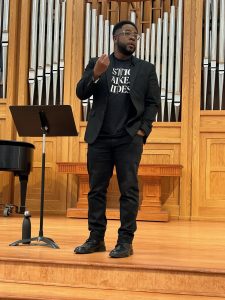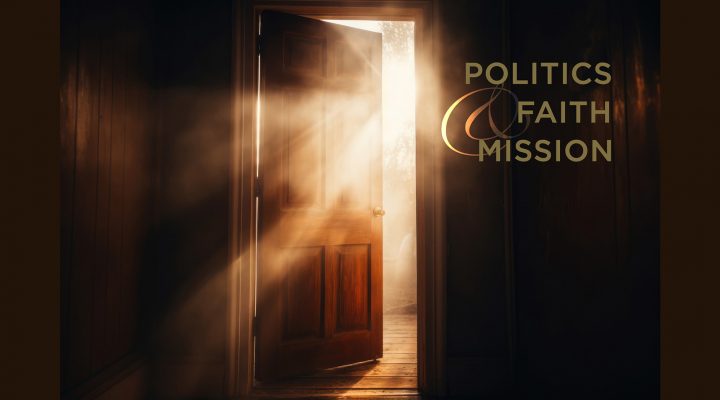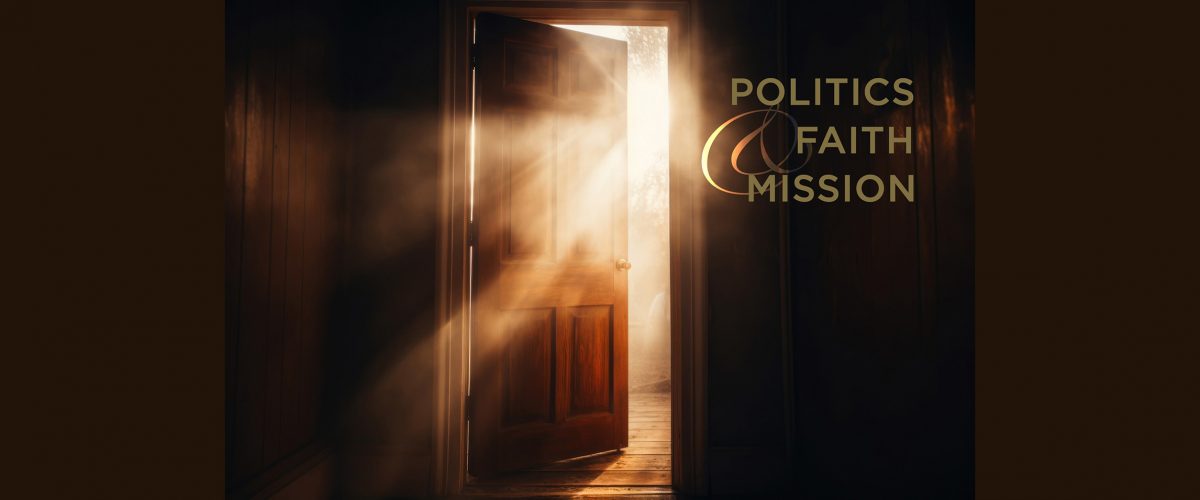Jemar Tisby is one of America’s most important prophetic voices, a historian who teaches us how the American church has failed on issues of race and justice, who helps people who look like me wrestle with the truth. His books, the New York Times bestseller The Color of Compromise and How to Fight Racism: Courageous Christianity and the Journey Toward Racial Justice are essential reading.
I asked Jemar to reflect with me on a wide range of issues facing America this year and am so grateful for this conversation, and for his courage and eloquence on so many issues that matter to people of faith.
Greg Garrett: Jemar, as we enter into an election year where a large segment of American Christians lean into white Christian nationalism and unwavering support of a disgraced ex-president, it seems more and more important that the truth be told about — as you lay it out so persuasively in The Color of Compromise — the church and its complicity in racism, past and present. Yet we both know many Americans aren’t familiar with or never have been taught some of the facts you lay out in your essential book. What are a few of the most important truths you would want people to know about that history?
Jemar Tisby: First, it didn’t have to be this way. Historians adhere to the idea of “contingency,” which means specific actors made specific choices in specific circumstances. They could have made different choices that led to different outcomes. Nothing that has happened historically was inevitable. It could have gone another way.
“Nothing that has happened historically was inevitable.”
What if Thomas Jefferson had really meant it when he wrote “all men are created equal” in the Declaration of Independence? What if the Virginia Assembly had decided plantation owners could not enslave Black people who converted to Christianity? What if justices had ruled in favor of the Black plaintiff in the Plessy v. Ferguson case?
So when we study the history of Christian complicity with racism, we should realize if more people had demonstrated courage over compromise, we’d be having a very different conversation today.
Second, there is no “golden era” of U.S. history when racism and white supremacy were not present or powerful. These ideologies were baked in from the beginning. For example, all the way back in the 1490s, Christopher Columbus wrote in his journal that the indigenous inhabitants “should be good servants and intelligent, for I observed that they quickly took in what was said to them, and I believe that they would easily be made Christians, as it appeared to me that they had no religion.”

Jemar Tisby
This paternalistic, racist view of Native Americans helped justify the erasure of their language, the disdain of their culture and religion, and the theft of their lands.
Finally, while people often say slavery was “America’s original sin,” I think it is more accurate to say America’s original sin was greed, and its symptom was slavery. Fundamentally, slavery was a form of economic exploitation designed to maximize profits by minimizing costs in the form of labor. What led to a Civil War in the United States was not simply individuals hating Black people for the color of their skin, it was wealthy white plantation owners who saw a threat to their “property” in people and would go to any length to protect it.
Today, racism often persists because discriminating against others is profitable to someone at the top.
GG: Complicating that truth-telling is this: There’s currently a trend for parents to try to ban controversial books and for state legislators to order schools not to address subjects that make their students — presumably straight white Christian students — feel ill at ease or experience guilt. You acknowledge The Color of Compromise might be hard for some to read. What case can you make for white discomfort and in favor of James Baldwin’s warning that unless we acknowledge our history, we all remain in chains?
JT: We should recognize that the majority of parents want their children to have an accurate education when it comes to our racial past and present. But a vocal minority is making that very difficult.
Small, organized and well-funded groups are often behind the current wave of book bans. For example, Moms for Liberty, founded in 2021, has a “guidance” document that tells people which books they find problematic. They also field candidates for local school board elections who vote to ban certain books. In North Carolina, it only took one parent complaint to get a book about Black history banned.
But even if you can access books that give an accurate accounting of racial history, learning such information can be difficult.
No matter how willing you are, in theory, to appreciate historical truth-telling, when it becomes apparent that your group is the oppressor it gets a lot harder to maintain that commitment.
“Ignorance is not bliss. Ignorance is bondage.”
One thing to consider — as hard as it is to learn the painful truth of racism, it has been infinitely harder for Black people and other people of color to endure the effects of racism. Let your consideration for others motivate you to learn this history.
From a Christian perspective, the Bible says, “You shall know the truth and the truth shall set you free.” Ignorance is not bliss. Ignorance is bondage. Freedom is found in knowing the truth and acting accordingly. So push through the discomfort. Liberation is on the other side.
GG: Both of us were raised in white evangelical traditions that seem largely to have been coopted by conservative politics and idolism of country, and they are still tremendously visible. Tim Alberta’s The Kingdom, The Power, and The Glory records a pastor’s lament that Jesus deserves a better American Christianity than this derailed American evangelicalism. What would/could a courageous Christianity look like, and how might we preach it to those with ears to hear?
JT: One of my frustrations is that white evangelicals tend to almost completely forget about the Black Christian tradition.
To put it plainly, there would be no Black church without racism in the white church. In fact, the Black church tradition is the clearest example of a body of teaching and praxis developed to explicitly resist the racism, white supremacy and conflation of faith and politics that characterizes much of U.S. evangelicalism.
Courageous Christianity looks like the seven major historically Black denominations in the U.S.
Courageous Christianity looks like the anti-lynching preaching of pastors in the Jim Crow era.
“If we want to know how to fight racism and white Christian nationalism today, we need look no further than the expansive Black Christian tradition.”
Courageous Christianity looks like the prophetic denunciations of racism from the leaders such as Prathia Hall and Fannie Lou Hamer.
If we want to know how to fight racism and white Christian nationalism today, we need look no further than the expansive Black Christian tradition.
GG: Last February when you spoke at Baylor, you wore your “Justice Takes Sides” shirt. I’ve since gotten one (and was complimented on it by an elderly Jewish woman at the Austin Jewish Community Center where I work out). But this shirt represents so much more than just a fashion choice. Can you talk about what “Justice Takes Sides” means to you, and how promoting it — and living it — might lead to some of the positive changes we want to see in the church and in our country?
JT: Human rights activist and accomplished singer Coretta Scott King said: “It doesn’t matter how strong your opinions are. If you don’t use your power for positive change, you are, indeed, part of the problem.“
The Justice Takes Sides brand arises from an impatience with the grumblings of those who claim the oppressed share equal responsibility for injustice with the oppressor. The liability for injustice is not 50/50. And the oppressed do not have to be ethically unassailable or imperturbably patient to warrant solidarity.
Neutrality in situations of injustice only supports the status quo. It only aids the empowered and further harms the disempowered.
“We must take a side, the side of justice.”
As human beings, we are the keepers of one another. We must intervene when it is in our power to do so.
Action is the idea behind “Justice Takes Sides.” It encourages people who are on the sidelines to get involved in the struggle for justice. We cannot stand aloof from suffering and arrogantly point out how “both sides” have their issues. We must take a side, the side of justice.
GG: In your books and teaching you offer a model for white recognition, repentance and reconciliation, “ARC,” that is one of the primary ways I approach talking with white churches and individuals about the work that’s ahead of us. Could you briefly explain for those who aren’t yet familiar with it (so they’ll want to become more familiar) what “ARC” stands for, and perhaps lay out a few essential action items for churches, organizations and individuals who can accept the truth about America and begin leaning into change?
JT: The ARC of Racial Justice is a framework to ensure our approach to fighting racism is robust and comprehensive. It stands for Awareness-Relationships-Commitment.
This framework is not linear as if you move from one pillar to the next in a strict sequence. Nor does it ever stop. We never finish the process and will be increasing our depth of understanding and practice throughout our lives.
Awareness refers to all the information, data and facts we need to work for racial justice. We need to become familiar with the way racism works if we want to work effectively against it. Awareness includes watching documentaries, reading books and attending conferences — all activities designed to raise our awareness levels.
Relationships are vital because all justice is relational. When God wanted to reconcile a people, God didn’t send a tweet or a Tik-Tok video. God sent the Son to establish a relationship with humanity. In a similar way, it is by knowing other people, developing friendships across lines of difference and forming coalitions with like-minded groups that we can confront racial injustice with love and neighborliness.
Commitment refers not simply to the idea of sticking with racial justice, but our dedication to changing systems, policies and institutions that create and perpetuate harm. We have to promote voting rights, rethink policing and incarceration, address the racial wealth gap and more. Racism is not simply a matter of personal attitudes about other people, it is a matter of systemic and institutional structures that must be changed.

Greg Garrett
Greg Garrett teaches creative writing, film, literature and theology classes at Baylor University. He is the author of two dozen books of fiction, nonfiction, memoir and translation, including the critically acclaimed novels Free Bird, Cycling, Shame and The Prodigal. His latest novel is Bastille Day. He is one of America’s leading voices on religion and culture. Two of his recent nonfiction books are In Conversation: Rowan Williams and Greg Garrett and A Long, Long Way: Hollywood’s Unfinished Journey from Racism to Reconciliation. He is a seminary-trained lay preacher in the Episcopal Church. He lives in Austin with his wife, Jeanie, and their two daughters.
Related articles:
Politics, Faith and Mission: A BNG interview series on the 2024 election and the Church
Politics, faith and mission: A talk with Tim Alberta on his book and faith journey


